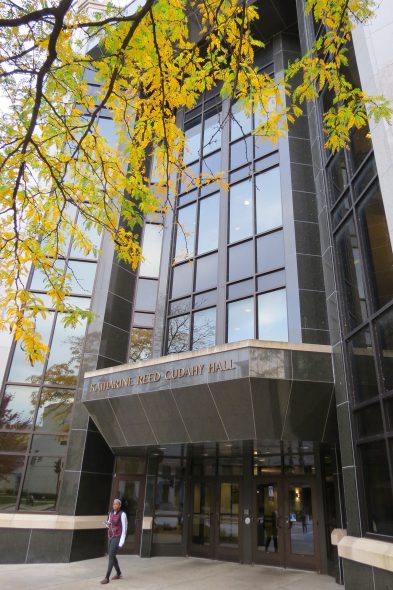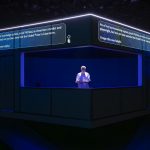Marquette’s high-performance computing cluster to officially open June 2
MILWAUKEE — Marquette University will officially open “Raj,” a new $1.5 million high-performance computing (HPC) cluster, with a ribbon-cutting ceremony on Wednesday, June 2, at 11 a.m. at Cudahy Hall, 1313 W. Wisconsin Ave.
Raj was brought online in April 2021 after being purchased, in part, through a Major Research Instrumentation grant from the National Science Foundation. The new HPC cluster will boost research and scholarship across the campus, offering faculty and students access to a modern powerful supercomputer.
Limited space is available for media who wish to attend. For access, contact Kevin Conway, associate director of university communication, at kevin.m.conway@marquette.edu.
“We are so excited to finally open ‘Raj’ to the Marquette’s research community as it will have a profound impact on research at Marquette,” said Dr. Qadir Timerghazin, associate professor of chemistry, the principal investigator on the NSF grant. “These days, high-performance computing is an essential part of the research in STEM disciplines and beyond. As a major component of Marquette’s research infrastructure, this cluster will be used by researchers throughout campus. Raj provides very impressive capabilities both for traditional number-crunching as well as for artificial intelligence and machine learning applications, opening door for new, innovative research.”
Raj is built with Hewlett-Packard Enterprise servers using the AMD Rome line of EPYC processors as well as NVIDIA Tesla V100 GPUs and is equipped with 1.5 PB storage array. It has a total of 7,808 CPU cores and 48 GPUs, including three 8-GPU nodes designed for advanced artificial intelligence and machine learning applications. A detailed description of Raj’s specifications is available on the HPC’s System Overview page.
The NSF grant was obtained through Marquette’s Department of Chemistry due to the efforts of the late Dr. Rajendra “Raj” Rathore, Pfletschinger-Habermann Professor of Chemistry, who died in February 2018. Despite being already very ill, he conceived a vision of a compelling grant application and enlisted—from his hospital bed—Timerghazin and Dr. Scott Reid, professor of chemistry, to complete the application that eventually was funded by the NSF.
“It’s part of Raj’s legacy,” Timerghazin said of the new cluster. “His passing was a huge loss for our department.”
Prior to the ribbon-cutting, limited access to the Raj HPC cluster had been available as staff members extensively tested the new facility. Raj replaces the previous HPC cluster, Père, which was installed in the late 2000s and contributed to approximately 200 research papers published by Marquette researchers.
NOTE: This press release was submitted to Urban Milwaukee and was not written by an Urban Milwaukee writer. While it is believed to be reliable, Urban Milwaukee does not guarantee its accuracy or completeness.
Mentioned in This Press Release
Recent Press Releases by Marquette University
New Marquette Law School Poll finds large majority of Wisconsin voters not yet tuned in to who is running in major 2026 elections
Oct 29th, 2025 by Marquette UniversityNo candidate has established strong position in public favorability in governor, state Supreme Court races; large majorities of voters undecided
New Marquette Law School National Survey Finds Large Majority Think Political Violence is a Big Problem, But With Sharp Partisan Differences
Oct 1st, 2025 by Marquette UniversityAmericans are overall pessimistic on reducing intense political conflict; half of those polled say heated language by leaders makes violence more likely























